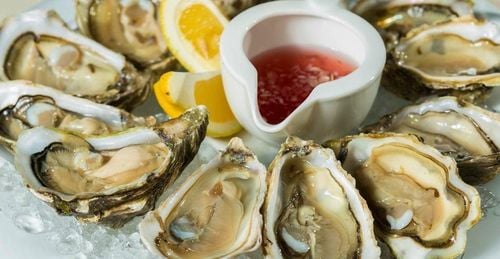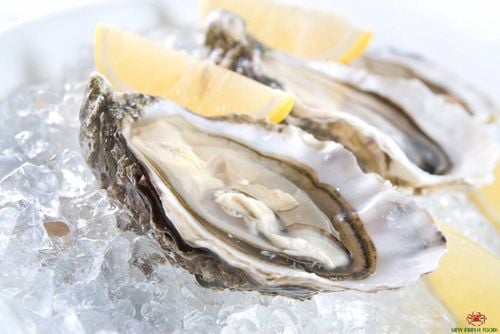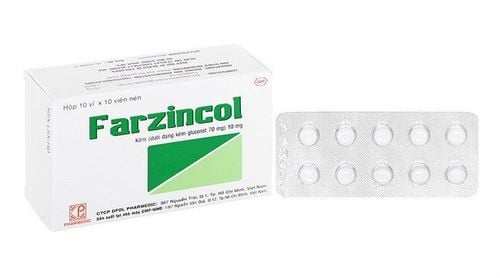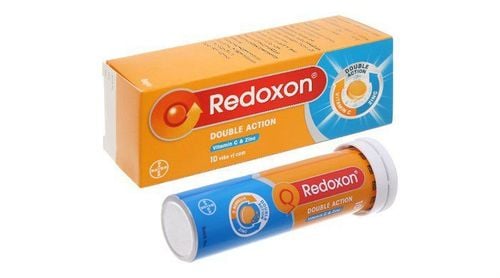This is an automatically translated article.
Zinc is a mineral found in many foods such as red meat, breads, cereals, and seafood. Breast milk also contains a certain amount of zinc.1. What is Zinc?
Zinc is a nutrient that for humans is an essential element. Zinc is present in every cell of the body. It helps the immune system fight invading bacteria and viruses. The human body needs zinc to make DNA and proteins to power cells.During pregnancy, infancy and childhood, the body needs zinc for proper growth and development. When an injury occurs, zinc makes the wound heal quickly and is important for the sense of smell and taste.
2. The role of zinc in growth in children
Recent global estimates indicate that more than a quarter of children under the age of 5 years are stunted, thereby placing a high risk of mortality and other adverse outcomes throughout life. Zinc is known to play an important role in biological processes including cell growth, differentiation and metabolism and a deficiency of this micronutrient limits the growth of young children and reduces resistance to disease. back infections.Although severe zinc deficiency is rare in humans, mild to moderate deficiency can be common, especially in populations that consume little zinc-rich animal source foods and consume high amounts of zinc. phytate-rich foods, which inhibit zinc absorption. Mild to moderate deficiency can be difficult to diagnose, as signs and symptoms such as increased susceptibility to infection and growth retardation are shared with other nutrient deficiencies and childhood illnesses.
Despite some inconsistent results (possibly due to challenges in measuring zinc status), meta-analyses of intervention studies in multiple countries demonstrated a positive association between zinc supplementation and linear growth in children. Analysis from one of the studies showed that a dose of 10 mg of zinc per day for 24 weeks resulted in an increase in net height of zinc-fortified children by 0.37 (± 0.25) cm compared with those not supplemented with zinc. zinc supplement.
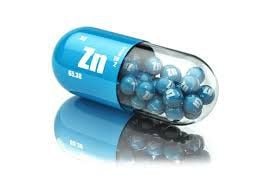
Việc bổ sung kẽm có thể có tác động lớn hơn đến sự tăng trưởng ở trẻ thấp còi so với trẻ không thấp còi
Although zinc supplementation is considered safe and has been recommended as an effective intervention to reduce morbidity associated with diarrhea and lower respiratory tract infections in young children requiring zinc supplementation Some programmatic challenges may be encountered on a daily basis. Key operational constraints to the successful delivery of such supplements include the procurement and distribution of supplements over an extended period of time; the target population has limited access to and poor use of health services; inadequate training and motivation for frontline health workers; inadequate counseling for target recipients or their carers; and low compliance by the intended beneficiaries.
In countries with widespread zinc deficiency and high rates of stunting in children, prophylactic zinc supplementation has a small but significant positive effect on linear growth. The limited impact of zinc supplementation suggests that such an intervention should be part of a more comprehensive effort to improve the overall nutritional status of children, especially during the first two years of life.
3. What foods provide zinc?

Kẽm được tìm thấy trong nhiều loại thực phẩm như hàu, thịt đỏ, hải sản, ngũ cốc,...
Infants 0 - 6 months: 2mg Infants 7-12 months: 3mg Children 1 to 3 years old: 3mg Children 4-8 years old: 4mg Zinc found in many foods. You can get the recommended amount of zinc by eating a variety of foods including the following:
Oysters are the best source of zinc. Red meat, poultry, seafood like crab and lobster, and fortified breakfast cereals, are also good sources of zinc. Beans, nuts, whole grains, and dairy products provide some zinc. Zinc deficiency can cause dangerous complications for children's health and mental health, so parents need to observe and timely supplement this important source of vitamin.
In addition to dietary supplements, parents can give their children supportive foods containing zinc and essential micro-minerals such as Lysine, chromium, selenium, vitamin B... to help fully meet their needs. nutritional requirements in children. At the same time, these essential vitamins also support digestion, enhance nutrient absorption, help improve anorexia, and help children eat well.
Please regularly visit Vinmec.com website and update useful information to take care of your baby and family.




